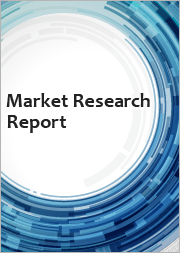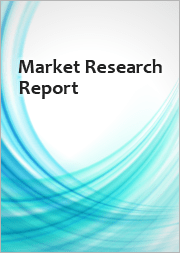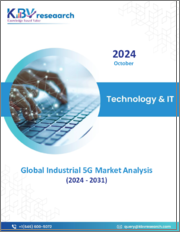
|
시장보고서
상품코드
1637952
여행 및 관광 분야 인공지능 시장 규모 조사 : 구성요소별, 용도별, 지역별 예측(2022-2032년)Global Artificial Intelligence in Travel and Tourism Market Size Study, by Components, by Application and Regional Forecasts 2022-2032 |
||||||
세계 여행 및 관광 분야 인공지능 시장은 2032년까지 1조 6,590억 8,000만 달러에 달할 것으로 예상됩니다.
여행 및 관광 분야의 인공지능(AI) 세계 시장 규모는 2023년에 약 1,099억 2,000만 달러로 2024년부터 2032년까지 35.20%의 견고한 CAGR을 기록하여 2032년까지 1조 6,590억 8,000만 달러의 시장 규모에 도달할 것으로 예측됩니다. 여행 및 관광 분야의 AI는 서비스 제공 방식에 혁명을 일으켜 업무 간소화, 고객 경험 개선, 방대한 데이터세트 분석을 통한 의사결정 개선 등을 실현하고 있습니다. 서비스를 자동화하고 맞춤화할 수 있는 AI는 이 산업에서 필수 불가결한 존재가 되어 혁신과 업무 효율을 촉진하고 있습니다.
AI 기술은 다양한 분야에서 여행 업무를 재구성하고 있습니다. 저가 여행사들은 비용 효율화를 위해 자동화를 점점 더 많이 활용하고 있는 반면, 프리미엄 여행 서비스 제공업체들은 원활한 개인화 경험을 위해 인간의 손길을 중요시하고 있습니다. 머신러닝 알고리즘, 예측 분석, 생성형 AI와 같은 고급 AI 기능을 통해 맞춤형 추천과 업무 효율성 향상을 통해 고객의 기대에 부응할 수 있게 되었습니다.
AI의 급속한 확산은 여행업계 전반의 기술에 대한 대규모 투자에도 영향을 미치고 있습니다. 예를 들어, AI 기반 챗봇과 가상 비서는 기업이 24시간 365일 고객 문의를 관리하고 서비스 신뢰성을 향상시키는 데 도움을 주고 있습니다. 이러한 기술을 통해 기업은 고객의 행동을 예측하고, 가격 전략을 최적화하며, 전반적인 여행 경험을 향상시킬 수 있습니다. 그러나 데이터 프라이버시에 대한 우려와 AI 솔루션과 기존 시스템과의 통합 문제는 AI의 본격적인 도입을 제한할 수 있습니다.
여행 및 관광 분야 AI 시장의 지역적 역학은 전 세계적으로 그 중요성을 강조하고 있습니다. 북미는 항공사, 호텔, 여행 플랫폼 등 주요 업체들의 AI 기술 채택률이 높아 시장을 선도하고 있습니다. 유럽은 관광 산업의 디지털 혁신을 장려하는 정부 이니셔티브의 혜택을 받아 근소한 차이로 그 뒤를 잇고 있습니다. 반면, 아시아태평양은 디지털화, 여행 수요 증가, AI 기술 발전에 힘입어 가장 빠른 성장세를 보일 것으로 예상됩니다.
목차
제1장 세계의 여행 및 관광 분야 인공지능 시장 : 주요 요약
- 세계의 여행 및 관광 분야 인공지능 시장 규모 및 예측(2022-2032년)
- 지역별 개요
- 부문별 개요
- 구성요소별
- 용도별
- 주요 동향
- 경기후퇴의 영향
- 애널리스트의 제안과 결론
제2장 세계의 여행 및 관광 분야 인공지능 시장 : 정의와 조사 가정
- 조사 목적
- 시장 정의
- 조사 가정
- 포함 사항·제외 사항
- 제한사항
- 공급측 분석
- 가용성
- 인프라
- 규제 프레임워크
- 시장 경쟁
- 경제성(소비자의 관점)
- 수요측 분석
- 규제 프레임워크
- 기술적 진보
- 친환경
- 소비자 의식과 수용
- 조사 방법
- 조사 대상 연도
- 통화 환산율
제3장 세계의 여행 및 관광 분야 인공지능 시장 역학
- 시장 성장 촉진요인
- 자동화·개인화된 서비스에 대한 수요 증가
- AI 기술에 대한 투자 증가
- AI 애플리케이션 데이터 가용성 향상
- 시장 과제
- 데이터 프라이버시에 관한 우려
- 레거시 시스템과의 통합 문제
- 시장 기회
- 신흥 시장에 대한 진출
- AI 기술의 진보
- 생성형 AI 채용 확대
제4장 세계의 여행 및 관광 분야 인공지능 업계 분석
- Porter's Five Forces 모델
- 공급 기업의 교섭력
- 구매자의 교섭력
- 신규 참여업체의 위협
- 대체품의 위협
- 경쟁 기업 간의 경쟁 관계
- Porter's Five Forces 모델의 영향 분석
- PESTEL 분석
- 정치
- 경제
- 사회
- 기술
- 환경
- 법률
- 주요 투자 기회
- 승리 전략
- AI 애플리케이션의 파괴적 동향
- 애널리스트의 제안
제5장 세계의 여행 및 관광 분야 인공지능 시장 규모 및 예측 : 구성요소별(2022-2032년)
- 부문 대시보드
- 세계의 여행 및 관광 분야 인공지능 시장 : 컴포넌트 매출 동향 분석, 2022년·2032년
- 첨단 AI 기능
- 자동화 툴
- 고객 경험 향상
- 업무 효율
제6장 세계의 여행 및 관광 분야 인공지능 시장 규모 및 예측 : 용도별(2022-2032년)
- 부문 대시보드
- 세계의 여행 및 관광 분야 인공지능 시장 : 용도 매출 동향 분석, 2022년·2032년
- 항공사
- 공항
- 숙박
- 교통기관
제7장 세계의 여행 및 관광 분야 인공지능 시장 규모 및 예측 : 지역별(2022-2032년)
- 북미
- 미국
- 캐나다
- 유럽
- 영국
- 독일
- 프랑스
- 스페인
- 이탈리아
- 기타 유럽
- 아시아태평양
- 중국
- 인도
- 일본
- 호주
- 한국
- 기타 아시아태평양
- 라틴아메리카
- 브라질
- 멕시코
- 기타 라틴아메리카
- 중동 및 아프리카
- 사우디아라비아
- 남아프리카공화국
- 기타 중동 및 아프리카
제8장 경쟁 정보
- 주요 기업 SWOT 분석
- Accor
- Airbnb
- Booking Holdings
- 주요 시장 전략
- 기업 개요
- Accor
- Airbnb
- Booking Holdings
- Delta Air Lines
- Dubai Airports Company
- easyJet
- Expedia
- Hopper
- InterContinental Hotels Group
- Marriott International
- Turkish Airlines
제9장 조사 과정
- 조사 방법
- 데이터 마이닝
- 분석
- 시장 예측
- 검증
- 출판
- 조사 속성
Global Artificial Intelligence in Travel and Tourism Market to reach USD 1659.08 billion by 2032.
The global Artificial Intelligence (AI) in Travel and Tourism Market was valued at approximately USD 109.92 billion in 2023 and is projected to experience a robust CAGR of 35.20% from 2024 to 2032, reaching a market size of USD 1659.08 billion by 2032. AI in travel and tourism is revolutionizing how services are delivered, ensuring streamlined operations, enhanced customer experiences, and better decision-making through the analysis of vast data sets. With its ability to automate and customize services, AI has become indispensable in this industry, driving innovation and operational efficiency.
AI technologies are reshaping travel operations across various sectors. Budget providers are increasingly leveraging automation for cost efficiencies, while premium travel service providers emphasize the human touch for a seamless, personalized experience. Advanced AI capabilities, such as machine learning algorithms, predictive analytics, and generative AI, are enabling businesses to meet customer expectations through tailored recommendations and improved operational efficiency.
The exponential growth in AI adoption is also fueled by significant investments in the technology across travel sectors. For example, AI-powered chatbots and virtual assistants are helping businesses manage customer inquiries 24/7, thus improving service reliability. These technologies enable businesses to forecast customer behavior, optimize pricing strategies, and enhance overall travel experiences. However, challenges like data privacy concerns and the integration of AI solutions with existing systems may limit the full-scale adoption of AI.
Regional dynamics in the AI in travel and tourism market underscore its global significance. North America leads the market due to high adoption rates of AI technologies among key players, including airlines, hotels, and travel platforms. Europe follows closely, benefiting from government initiatives to encourage digital transformation in tourism. Meanwhile, Asia-Pacific is projected to exhibit the fastest growth, driven by rising digitalization, increased travel demand, and advancements in AI technologies.
Major market players included in this report are:
- Accor
- Airbnb
- Booking Holdings
- Delta Air Lines
- Dubai Airports Company
- easyJet
- Expedia
- Hopper
- InterContinental Hotels Group
- Marriott International
- Turkish Airlines
- Sabre Corporation
- Amadeus IT Group
- IBM Corporation
- Google LLC
The detailed segments and sub-segment of the market are explained below:
By Components
- Advanced AI Capabilities
- Automation Tools
- Customer Experience Enhancements
- Operational Efficiencies
By Application
- Airlines
- Airports
- Lodging
- Transportation
By Region
- North America
- U.S.
- Canada
- Europe
- UK
- Germany
- France
- Spain
- Italy
- Rest of Europe
- Asia Pacific
- China
- India
- Japan
- Australia
- South Korea
- Rest of Asia Pacific
- Latin America
- Brazil
- Mexico
- Rest of Latin America
- Middle East & Africa
- Saudi Arabia
- South Africa
- Rest of MEA
Years considered for the study are as follows:
- Historical year - 2022
- Base year - 2023
- Forecast period - 2024 to 2032
Key Takeaways:
- Market Estimates & Forecast for 10 years from 2022 to 2032.
- Annualized revenues and regional-level analysis for each market segment.
- Detailed analysis of the geographical landscape with country-level analysis of major regions.
- Competitive landscape with information on major players in the market.
- Analysis of key business strategies and recommendations on future market approaches.
- Analysis of the competitive structure of the market.
- Demand-side and supply-side analysis of the market.
Table of Contents
Chapter 1. Global Artificial Intelligence in Travel and Tourism Market Executive Summary
- 1.1. Global Artificial Intelligence in Travel and Tourism Market Size & Forecast (2022-2032)
- 1.2. Regional Summary
- 1.3. Segmental Summary
- 1.3.1. By Components
- 1.3.2. By Application
- 1.4. Key Trends
- 1.5. Recession Impact
- 1.6. Analyst Recommendation & Conclusion
Chapter 2. Global Artificial Intelligence in Travel and Tourism Market Definition and Research Assumptions
- 2.1. Research Objective
- 2.2. Market Definition
- 2.3. Research Assumptions
- 2.3.1. Inclusion & Exclusion
- 2.3.2. Limitations
- 2.3.3. Supply Side Analysis
- 2.3.3.1. Availability
- 2.3.3.2. Infrastructure
- 2.3.3.3. Regulatory Environment
- 2.3.3.4. Market Competition
- 2.3.3.5. Economic Viability (Consumer's Perspective)
- 2.3.4. Demand Side Analysis
- 2.3.4.1. Regulatory Frameworks
- 2.3.4.2. Technological Advancements
- 2.3.4.3. Environmental Considerations
- 2.3.4.4. Consumer Awareness & Acceptance
- 2.4. Estimation Methodology
- 2.5. Years Considered for the Study
- 2.6. Currency Conversion Rates
Chapter 3. Global Artificial Intelligence in Travel and Tourism Market Dynamics
- 3.1. Market Drivers
- 3.1.1. Rising Demand for Automated and Personalized Services
- 3.1.2. Growing Investments in AI Technologies
- 3.1.3. Increased Data Availability for AI Applications
- 3.2. Market Challenges
- 3.2.1. Data Privacy Concerns
- 3.2.2. Integration Issues with Legacy Systems
- 3.3. Market Opportunities
- 3.3.1. Expansion in Emerging Markets
- 3.3.2. Advancements in AI Technologies
- 3.3.3. Increasing Adoption of Generative AI
Chapter 4. Global Artificial Intelligence in Travel and Tourism Industry Analysis
- 4.1. Porter's Five Forces Model
- 4.1.1. Bargaining Power of Suppliers
- 4.1.2. Bargaining Power of Buyers
- 4.1.3. Threat of New Entrants
- 4.1.4. Threat of Substitutes
- 4.1.5. Competitive Rivalry
- 4.1.6. Impact Analysis of Porter's Five Forces Model
- 4.2. PESTEL Analysis
- 4.2.1. Political
- 4.2.2. Economic
- 4.2.3. Social
- 4.2.4. Technological
- 4.2.5. Environmental
- 4.2.6. Legal
- 4.3. Top Investment Opportunities
- 4.4. Winning Strategies
- 4.5. Disruptive Trends in AI Applications
- 4.6. Analyst Recommendations
Chapter 5. Global Artificial Intelligence in Travel and Tourism Market Size & Forecasts by Components (2022-2032)
- 5.1. Segment Dashboard
- 5.2. Global Artificial Intelligence in Travel and Tourism Market: Component Revenue Trend Analysis, 2022 & 2032 (USD Billion)
- 5.2.1. Advanced AI Capabilities
- 5.2.2. Automation Tools
- 5.2.3. Customer Experience Enhancements
- 5.2.4. Operational Efficiencies
Chapter 6. Global Artificial Intelligence in Travel and Tourism Market Size & Forecasts by Application (2022-2032)
- 6.1. Segment Dashboard
- 6.2. Global Artificial Intelligence in Travel and Tourism Market: Application Revenue Trend Analysis, 2022 & 2032 (USD Billion)
- 6.2.1. Airlines
- 6.2.2. Airports
- 6.2.3. Lodging
- 6.2.4. Transportation
Chapter 7. Global Artificial Intelligence in Travel and Tourism Market Size & Forecasts by Region (2022-2032)
- 7.1. North America
- 7.1.1. U.S.
- 7.1.1.1. Component Breakdown (2022-2032)
- 7.1.1.2. Application Breakdown (2022-2032)
- 7.1.2. Canada
- 7.1.2.1. Component Breakdown (2022-2032)
- 7.1.2.2. Application Breakdown (2022-2032)
- 7.1.1. U.S.
- 7.2. Europe
- 7.2.1. UK
- 7.2.2. Germany
- 7.2.3. France
- 7.2.4. Spain
- 7.2.5. Italy
- 7.2.6. Rest of Europe
- 7.3. Asia Pacific
- 7.3.1. China
- 7.3.2. India
- 7.3.3. Japan
- 7.3.4. Australia
- 7.3.5. South Korea
- 7.3.6. Rest of Asia Pacific
- 7.4. Latin America
- 7.4.1. Brazil
- 7.4.2. Mexico
- 7.4.3. Rest of Latin America
- 7.5. Middle East & Africa
- 7.5.1. Saudi Arabia
- 7.5.2. South Africa
- 7.5.3. Rest of Middle East & Africa
Chapter 8. Competitive Intelligence
- 8.1. Key Company SWOT Analysis
- 8.1.1. Accor
- 8.1.2. Airbnb
- 8.1.3. Booking Holdings
- 8.2. Top Market Strategies
- 8.3. Company Profiles
- 8.3.1. Accor
- 8.3.2. Airbnb
- 8.3.3. Booking Holdings
- 8.3.4. Delta Air Lines
- 8.3.5. Dubai Airports Company
- 8.3.6. easyJet
- 8.3.7. Expedia
- 8.3.8. Hopper
- 8.3.9. InterContinental Hotels Group
- 8.3.10. Marriott International
- 8.3.11. Turkish Airlines
Chapter 9. Research Process
- 9.1. Research Methodology
- 9.1.1. Data Mining
- 9.1.2. Analysis
- 9.1.3. Market Estimation
- 9.1.4. Validation
- 9.1.5. Publishing
- 9.2. Research Attributes






